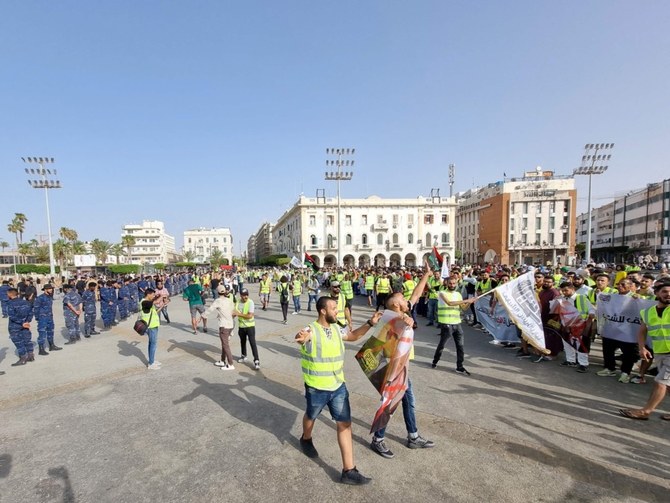BENGHAZI, Libya – Demonstrators stormed the building that houses the eastern Libyan parliament in Tobruk on Friday, torching parts of it in protest of months of failed efforts to bring the split country back together.
Taher Amaizig, a witness, claimed thousands marched to the parliament building, calling for the current governmental powers to be dissolved and elections to be held. He claimed that as security personnel attempted to barricade the entrance, a protester was shot in the legs, and that additional demonstrators then forced their way inside.
Social media videos showed demonstrators filing through flaming stacks. Because Friday is the start of the weekend in Libya, the building was most likely unoccupied when it was stormed. It was unclear why the demonstrators chose to target the structure.
Earlier in the day, rallies demanding elections were held in various locations around Libya.
The turmoil comes a day after officials from Libya’s competing powers — one in the east and the other in the west — failed to achieve an agreement on a constitutional framework for national elections at UN-mediated negotiations in Geneva.
Despite a year of modest moves toward peace, the country is once again divided by warring administrations after more than a decade of war.
Oil-rich Conflict has wracked Libya since a NATO-backed rebellion ousted and murdered longtime tyrant Muammar Qaddafi in 2011, resulting in the establishment of rival governments. The administration in the east is supported by military commander Khalifa Haftar, while the administration in Tripoli is supported by the UN. Different militias and international powers back either side.
Tobruk, Libya’s House of Representatives’ seat, has traditionally been linked with Haftar. Recently, the parliament in Tripoli chose Fathy Basghagha as prime minister of a competing government to the Tripoli-based administration. Bashagha, a prominent former interior minister, now runs a separate administration from Sirte.
Libya’s election plan fell through on December 24 as the temporary administration in Tripoli, led by Prime Minister Abdul Hamid Dbeibah, refused to hold the vote. The failure was a severe setback for international efforts to bring Libya’s decade-long instability to an end.
The deteriorating economic condition was also a role in the protests on Friday. Hundreds of people gathered in Tripoli earlier in the day to protest the political turmoil, but also to protest energy shortages and rising petrol and bread prices.
Source: Arab News


